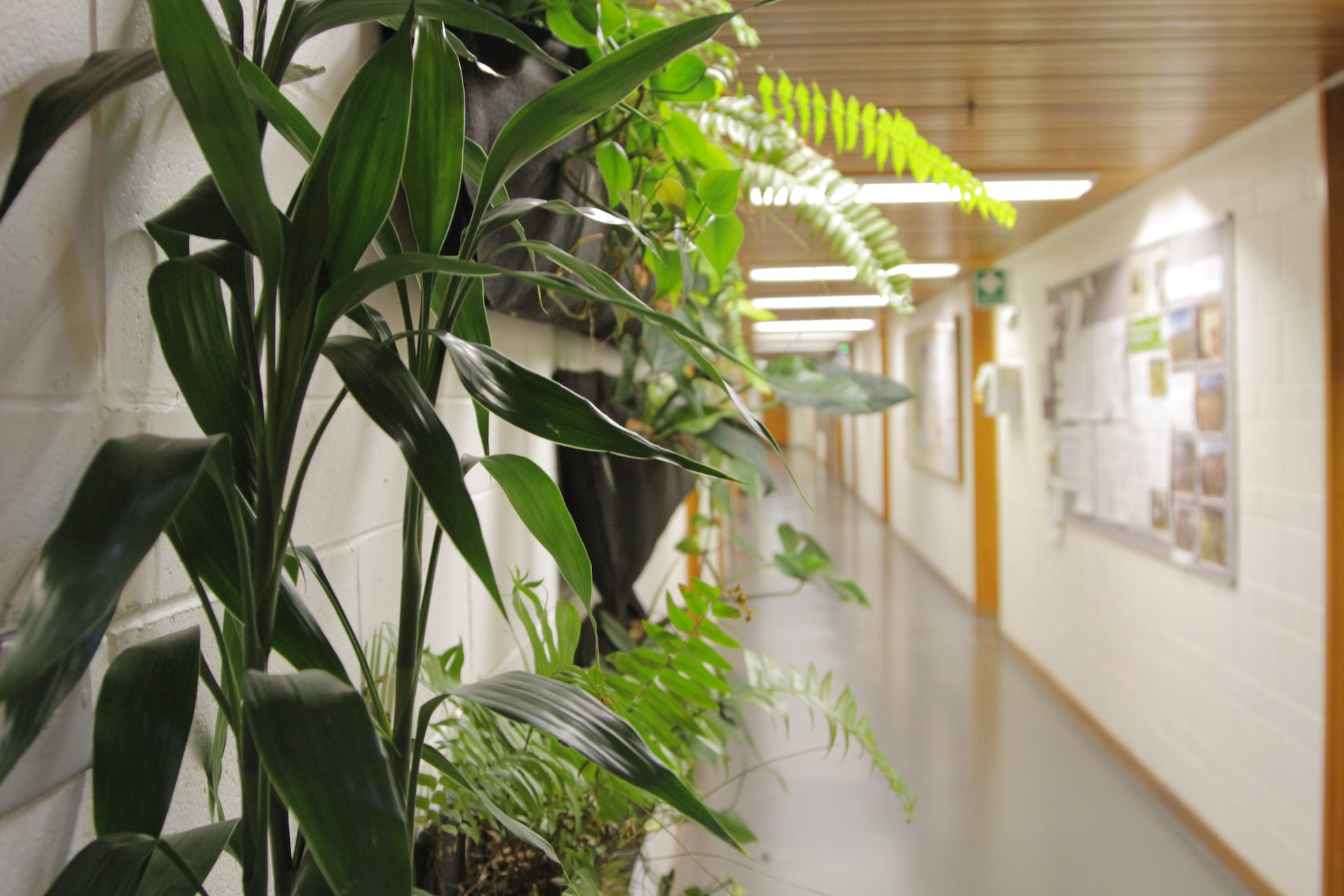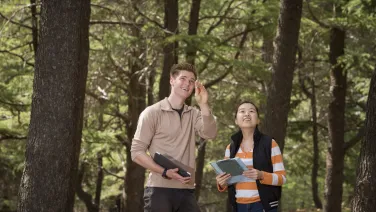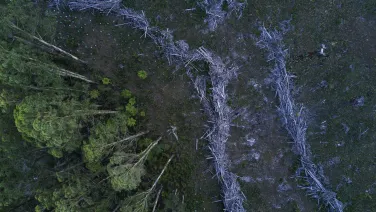The only way is up: how plants can change our behaviour

Two corridors diverged in the ANU Forestry Building.
Both are thoroughfares, running parallel, and used by staff and students to move between lecture theatres, laboratories and academics’ offices.
Most people choose to take the northern hallway, which is the slightly more direct route to the main lecture theatre. But then something happened in the southern corridor, the one less travelled by - and it made all the difference.
People walking past began to notice something new: there were now a number of green indoor plants hanging in pockets from the wall.
What they didn’t know is they’d been installed there as part of a study by Dr Aini Jasmin Ghazalli.
“We used a counter to measure foot traffic before and after the installation of the vertical green wall in the less popular corridor, and what we found is that the traffic actually changed within the first few weeks,” Dr Ghazalli says. “It was a fantastic result.”
The number of people choosing to walk down the southern corridor increased by 58 per cent after the plants appeared there, and they continued to use that route for the two months of the study. The green wall actually changed their behaviour.
“It’s well-known that people are more attracted to natural elements, so when we see something green up ahead, it sparks curiosity,” Dr Ghazalli says.
“Many times, people could be heard saying, ‘Is this real?’ And then they touched the leaves and said, ‘Oh, it is real!’ Because the hallway has totally no natural lighting, it makes people curious. And when they know that it is real, they appreciate it more and pass by more often.”

Dr Ghazalli’s study was part of her PhD research at the ANU Fenner School of Environment and Society, looking at the health and wellbeing impact of vertical greenery systems. She found that not only did the plants attract attention and encourage interaction, they improved people’s moods, with study participants reporting they felt more relaxed, or found they were smiling as they walked past.
Dr Ghazalli was inspired to pursue her PhD at ANU while teaching landscape architecture at Universiti Putra Malaysia in Kuala Lumpur.
“Most studies on vertical greenery systems focus on optimising building function,” she says. “I saw a big gap in how it improves health. My PhD showed that even having small pockets of plants inside can be beneficial to our mental health, providing comfort and focus, and reducing workplace stress.”
Her study also found that dust levels decreased in the southern corridor over the time the green wall was installed, suggesting vertical greenery systems could have an impact on dust-induced respiratory diseases.
Having recently graduated, Dr Ghazalli has now returned to Kuala Lumpur, where she hopes to put her findings into practice.
“Unlike Canberra, which was planned to take nature into account, Kuala Lumpur has a big problem in allowing people to have exposure to greenery. Vertical greenery is an advantage for tight spaces because even if you don’t have enough horizontal space for indoor pot plants, you can always go up.”
Find out more about PhD opportunities at the Fenner School of Environment and Society.



